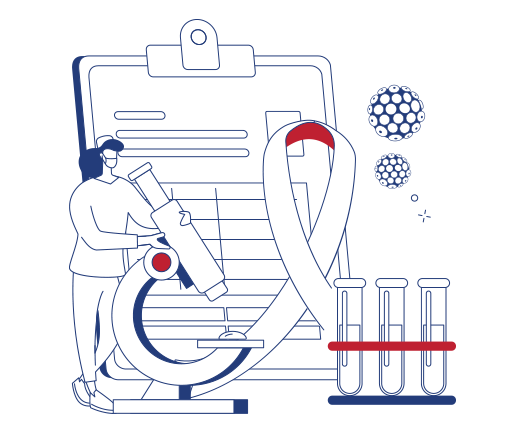

Infertility is a disturbingly common health disorder, robbing couples of the joy of parenthood. The problem can crop up due to a range of factors, like lifestyle irregularities, structural abnormalities, and hormonal problems. Apart from being a physical disorder, infertility can lead to serious psychological and emotional stress.
At PBHRC, we work closely with our patients to diagnose and cure the root causes of infertility. Our infertility treatment solutions are natural, effective, and combine well with the healing system of the human body.
A persistent challenge of achieving pregnancy in spite of engaging in regular and systematic physical intercourse.
A too-long or too-short menstrual cycle that causes challenge in ovulation, affecting a woman’s ability to conceive.
Persistent difficulty in ejaculation or maintaining a penile erection while having intercourse
Shift in libido or frequent declining interest in participating in sexual activities
Experiencing multiple spontaneous pregnancy loss before the 20th week
PBHRC works closely with male and female partners to identify and address the underlying causes of infertility in order to promote their well-being. With the help of our expert team, PBHRC provides natural, effective, and non-invasive solutions to treat all types of problems related to infertility.
Backed by ongoing medical research studies, we are committed to providing our patients with effective solutions and treatment plans that are unique to their needs and requirements to optimise infertility and sexual disorders of both men and women.

PBHRC specialises in delivering homeopathy treatments, solutions and personalised remedies that ensure long-term resolution of all types of infertility problems in both men and women.
 LOSS OF LIBIDO
LOSS OF LIBIDOLack of interest in engaging in sexual activities or not having sexual desire completely
 PREMATURE EJACULATION
PREMATURE EJACULATIONSemen emissions occurring just before or shortly after starting intercourse
 ERECTILE DYSFUNCTION
ERECTILE DYSFUNCTIONConstant difficulties in getting an erection or ejaculating during sexual activity.

Across 4 generations and 150+ years, PBHRC has been the most trusted homeopathic research clinic for patients across geographies. With competitively priced treatments with no side-effects, we constantly strive to bring in healthier tomorrows.
Both offline and online doctor consultations are available
Custom treatment plans to tackle all types of diseases
Proven track record of treating critical illnesses and other health issues
Affordable treatments and free consultations for the underprivileged

Years of service

Happy Patients worldwide

Specialized Doctors

At PBHRC, we are driven by an unwavering commitment to deliver quality healthcare services to everyone and transform lives. Here’s what some of our clients have to say about our treatment solutions.
Get the answers to all your treatment-related questions here.
